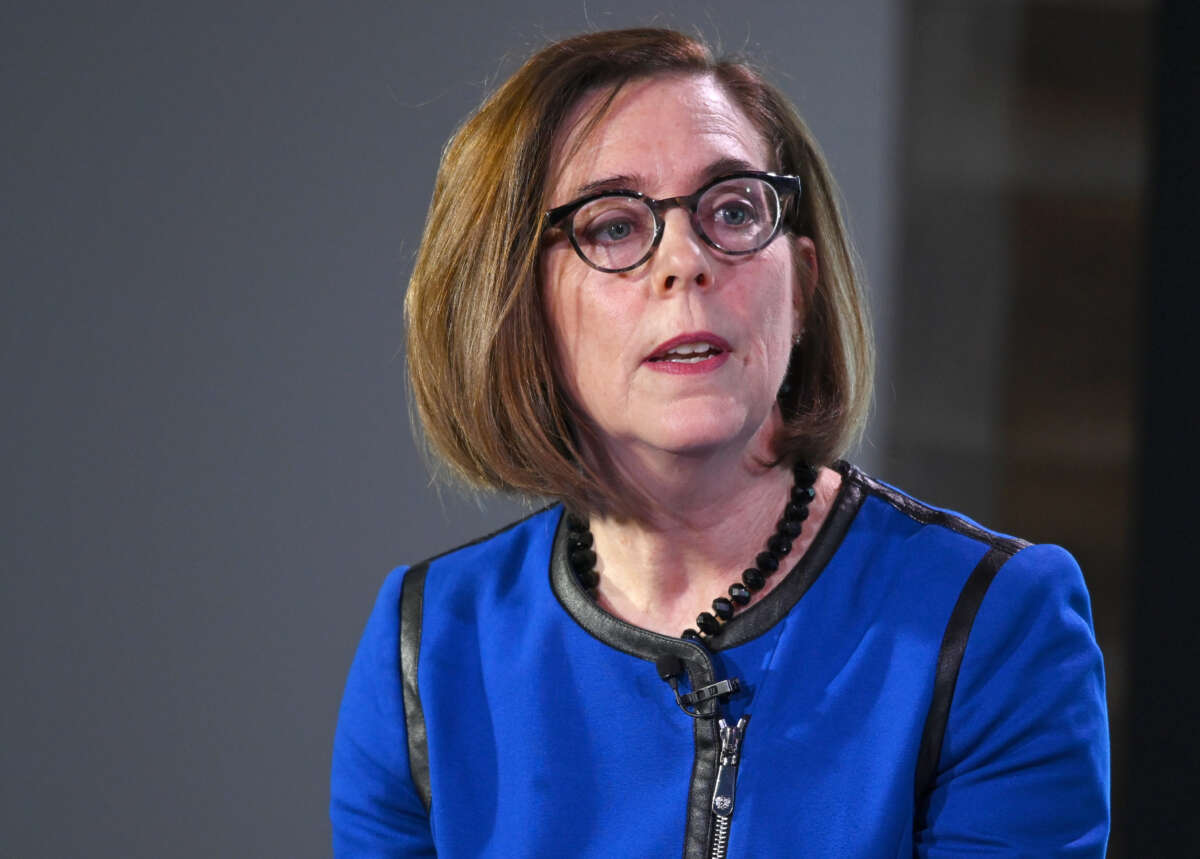Honest, paywall-free news is rare. Please support our boldly independent journalism with a donation of any size.
Outgoing Oregon Gov. Kate Brown announced this week that she is commuting the death sentences of every person on death row in the state as one of her final acts in office, citing the cruelty of the death penalty.
All 17 of the people awaiting the death penalty in the state will now be sentenced to life in prison without parole, otherwise known as death by incarceration. The governor’s executive action takes effect on Wednesday.
Brown, a Democrat, said that the death penalty is “both dysfunctional and immoral.” “I have long believed that justice is not advanced by taking a life, and the state should not be in the business of executing people,” the governor said in a statement.
The death penalty is an inhumane punishment that activists have long sought to end entirely. People who sit on death row — their lives at the whims of politicians — and those who have survived death row describe the experience as its own form of torture, one that will haunt them for the rest of their lives whether they are executed by the government or not.
The governor’s decision “reflects the recognition that the death penalty is immoral,” Brown said. “It is an irreversible punishment that does not allow for correction; is wasteful of taxpayer dollars; does not make communities safer; and cannot be and never has been administered fairly and equitably.”
Not only is the death penalty cruel and a racist relic of slavery and segregation, it has also been shown to be ineffective at its purported goal. Research has continually found that the death penalty does not prevent crime, and advocates say the resources that are spent on death row would be better spent supporting real crime prevention methods of rehabilitation and community investment.
Oregon has not killed an imprisoned person since 1997, and Brown has continued previous governors’ actions to place a moratorium on executions. Democrat Tina Kotek, who is set to succeed Brown, has said that she plans to continue the moratorium.
Just 27 states as well as the federal government use the death penalty as a punishment, with moratoriums in three states, including Oregon.
Advocates celebrated the commutations. “We send our deep gratitude to Gov. Kate Brown for taking another vital step toward eliminating the death penalty in Oregon and across the country,” said Jamila Hodge, executive director of Equal Justice U.S.A., in a statement. “By commuting death row, she strengthens the national movement away from system responses, rooted in racial oppression, that respond to violence with violence.”
However, imprisoned people and activists say life in prison without parole is another form of the death sentence, or death by imprisonment, and the U.S.’s sentencing policies are particularly harsh in comparison to those of other countries.
Being taken off of death row still represents a win for the prisoners, who now no longer have to live in limbo over whether or not the state will soon come to execute them, and could live in hope that activists or legal advocates could one day set them free from the U.S.’s cruel prison system.
Activists have worked over the years to end the practice of life in prison without parole. Earlier this year, several human rights groups submitted a letter urging the UN to call for the abolition of death by incarceration, pointing out that the U.S. sentences far more people to die in prison than any other country.
“Death by incarceration is the devastating consequence of a cruel and racially discriminatory criminal legal system that is designed not to address harm, violence, and its root causes, but to satisfy the political pressure to be tough on crime,” the letter writers wrote.
Press freedom is under attack
As Trump cracks down on political speech, independent media is increasingly necessary.
Truthout produces reporting you won’t see in the mainstream: journalism from the frontlines of global conflict, interviews with grassroots movement leaders, high-quality legal analysis and more.
Our work is possible thanks to reader support. Help Truthout catalyze change and social justice — make a tax-deductible monthly or one-time donation today.
